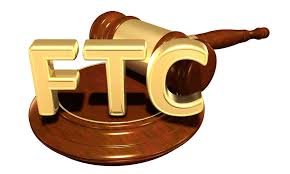The Fight Continues: CMS’s 2024 Decision on Cardiac Electrophysiology Procedures in ASCs
Despite concerted efforts by the Arrhythmia Intervention Society (AIS) and our allies in the field, cardiac electrophysiology (EP) procedures, including critical interventions such as ablations, electrophysiological studies, and cardioversions, were not included in the ASC Covered Procedure List (CPL)
AIS Urges Passage of HR 10073 to Protect Medicare Seniors' Access to Critical Electrophysiology and Cardiovascular Care
The Arrhythmia Intervention Society (AIS) is rallying support for HR 10073, a vital legislation that promises safeguarding access to specialized cardiac care for Medicare seniors.
CMS 2025 Final Rule: Advocating for Electrophysiology Procedures in ASCs
The Centers for Medicare and Medicaid Services (CMS) are expected to release the final rule for the 2025 Hospital Outpatient Prospective Payment System (OPPS) and ASC Payment System on November 1, which could mark a significant turning point for electrophysiology (EP) procedures in Ambulatory Surgical Centers (ASCs). This decision will impact many aspects of cardiac care delivery, especially for procedures that AIS (Arrhythmia Intervention Society) has long advocated to make accessible in the ASC setting.
Comprehensive Review of the FTC's Non-Compete Ruling and Its Impact on Physicians
The FTC’s non-compete ruling, combined with the Supreme Court’s decision to overturn the Chevron Doctrine, has created an unprecedented regulatory environment for physicians. Staying informed and seeking expert legal advice will be crucial steps in navigating this evolving landscape.
AIS Partners with Mercury to Champion Advocacy for Electrophysiologists
The Arrhythmia Intervention Society (AIS) is excited to announce our engagement with Mercury, a renowned bipartisan public affairs and strategic communications firm, to lead our advocacy efforts in Washington, D.C. This partnership marks a pivotal step forward in amplifying our voice and addressing the key challenges that affect electrophysiologists and their ability to provide quality patient care.
Current Medicare Physician Payment Reform Efforts in Congress
The common thread among these legislative efforts is the recognition that the current Medicare payment system is unsustainable and threatens patient access to care. As these bills work their way through Congress, their success will be critical in ensuring that Medicare remains a viable and supportive program for both patients and providers.
Legislative Alerts
The Arrhythmia Intervention Society (AIS) is focused on advocating for policies that enhance the practice of electrophysiology and improve patient access to cutting-edge treatments.
Highlights of the key legislative priorities in Congress and ongoing efforts that impact electrophysiologists:
Ambulatory Surgery Centers: CMS Proposed Rule Omits Electrophysiology Procedures from ASC Covered List
The Centers for Medicare & Medicaid Services (CMS) recently released a proposed rule that did not include electrophysiology (EP) procedures in the list of covered surgical procedures for Ambulatory Surgical Centers (ASCs). This omission has raised concerns within the cardiology community, as it could impact patient access to crucial cardiac care services.
Implication, Advocacy, Next Steps, What to expect
AIS comments on the Hospital Outpatient Prospective Payment System (OPPS) and Ambulatory Surgical Center (ASC) proposed rule for calendar year (CY) 2025 (Proposed Rule)
AIS comments on the Hospital Outpatient Prospective Payment System (OPPS) and Ambulatory Surgical Center (ASC) proposed rule for calendar year (CY) 2025 (Proposed Rule)
Provider Reimbursement Stability Act of 2023 (H.R. 6371)
The Provider Reimbursement Stability Act of 2023 (H.R. 6371) is a bipartisan bill introduced in the House of Representatives on November 13, 2023. The bill aims to stabilize the Medicare Physician Fee Schedule (PFS) by addressing several issues related to budget neutrality and ensuring more predictable payment updates for providers.
Strengthening Medicare for Patients and Providers Act (H.R.2474)
The primary objective of H.R.2474 is to update Medicare physician payments by tying them to the Medicare Economic Index (MEI), ensuring that payments reflect inflationary changes in practice costs and wages, which could help stabilize the financial environment for medical practices.












